|
Categories
Categories
All
Archive
Archives
July 2024
|
Charitable giving traditions are a big part of many peoples’ lives. The ways philanthropic values translate into action and behavior, however, vary widely from person to person. And that’s a good thing! When you align your charitable giving activities with your own personality and the ways you like to do good, you’ll enjoy it a lot more and as a result, you’ll be more likely to get even more involved with your favorite causes.
Indeed, your choice of the causes you support may be based on personal experiences or even how you view your character. You may also find that philanthropy fosters personal growth and self-discovery. Some people find that getting involved in the community creates opportunities for networking and building relationships based on shared values and goals. That’s why it’s important to acknowledge that not everyone likes to “do good” in exactly the same way. To figure out what mix of charitable activities might best suit your personality, consider reflecting on whether you tend toward an ”investor,” “connector” or “activator” profile. Here’s what it might look like to be an “investor” type of philanthropist:
If you tend toward the “connector” type, this may describe your preferences:
If you’re an “activator” type, here’s what that could look like:
Whatever your personality type, the Community Foundation can help! Whether it’s setting up a donor-advised fund to organize your giving, working with you and your advisors to establish a legacy bequest, or getting your family and friends involved in site visits to favorite charities, we’re here for you! The team at the Community Foundation is honored to serve as a resource and sounding board as you build your charitable plans and pursue your philanthropic objectives for making a difference in the community. This article is provided for informational purposes only. It is not intended as legal, accounting, or financial planning advice. Please consult your tax or legal advisor to learn how this information might apply to your own situation. Every week, the team at the Community Foundation works with a wide range of charitably-minded individuals and families who are either already working with the Community Foundation or are considering establishing a donor-advised or other type of fund to organize their giving. We also talk with attorneys, accountants, and financial advisors as they work alongside charitably-minded clients. Indeed, many advisors are telling us that they’re taking advantage of summer’s slower pace to get a jump on 2024 tax planning and estate plan updates.
As you work with your advisors over the next few months, be sure to let them know that the Community Foundation can serve as the hub of your family’s philanthropy by administering a wide range of charitable giving vehicles, including:
Along these lines, some of you have requested that we provide a reading list to pass along to your advisors to help them stay up-to-date on legal and tax issues impacting charitable giving. Here are a few suggestions you could forward to your advisors (or simply forward this email):
As always, please let us know if you’d like our team to be part of a conversation with your advisors. We welcome the opportunity to serve as the go-to charitable giving resource as you build a comprehensive financial and estate plan that includes philanthropy. The team at the Community Foundation is honored to serve as a resource and sounding board as you build your charitable plans and pursue your philanthropic objectives for making a difference in the community. This article is provided for informational purposes only. It is not intended as legal, accounting, or financial planning advice. Please consult your tax or legal advisor to learn how this information might apply to your own situation. It’s an election year, which means you may have more questions than answers as you work with your advisors to build out your financial and estate plans. In particular, the looming sunset of key provisions of the Tax Cuts and Jobs Act (TCJA) of 2017 has created a tremendous amount of ambiguity.
For many taxpayers, the potential sunset of the TCJA’s higher estate tax exemption is top of mind. Unless Congress intervenes, the exemption is set to fall after December 31, 2025 from roughly $27 million per couple to approximately $14 million per couple (depending on inflation adjustments). No one has a crystal ball, and it is impossible at this point to know whether or when you should implement planning strategies to address potential changes in the law. Nevertheless, if you are among those who would be affected by the estate tax exemption’s precipitous drop, it’s important to know that charitable strategies can fit nicely into a gifting plan that would help offset the sunset’s impact. If you’re a business owner, for example, you could explore launching a gifting program now to transfer shares of the business not only to your heirs to take advantage of the higher exemption, but also to a donor-advised or other fund at the Community Foundation. With these gifts, you could reduce the value of your taxable estate while also executing a business transition and philanthropy plan that aligns with your overall intentions regardless of the tax laws. Along those lines, some families may decide to lean into annual exclusion gifts ($18,000 per gifting spouse per recipient in 2024) to family members and other individuals to reduce taxable estates without eating into the lifetime gift and estate tax exemptions. If you’re considering ramping up your annual exclusion gifts, you might consider adopting a parallel strategy for charitable gifts. Gifts to charities are deductible for gift and estate tax purposes (as well as for income tax purposes) and therefore will also reduce the value of your taxable estate without using your exemption. Some philanthropists report that they like the idea of making annual exclusion gifts to family members, and, while they’re at it, making stock gifts of an equal amount into a donor-advised fund at the Community Foundation. Given the uncertainty about what might happen with the estate tax exemption, some people are updating their estate plans to increase a bequest to a donor-advised or other fund at the Community Foundation. This would help blunt the impact of estate taxes, and the bequest can be adjusted during lifetime as planning goals and estate tax laws evolve. The Community Foundation is here for you! Our team is happy to help you navigate the opportunities and pitfalls presented by potential changes in the tax law. It is our pleasure to work with you and your family to maximize your charitable goals. The team at the Community Foundation is honored to serve as a resource and sounding board as you build your charitable plans and pursue your philanthropic objectives for making a difference in the community. This article is provided for informational purposes only. It is not intended as legal, accounting, or financial planning advice. Please consult your tax or legal advisor to learn how this information might apply to your own situation. At first glance, you may think of charitable giving as mostly an individual act. Certainly, most of the time, the actual money or asset that constitutes the charitable donation comes from a single person, couple, or entity. Beyond that, though, it likely makes sense to think of charitable giving as a collaborative endeavor.
Here are three examples:
Thank you for the opportunity to work together to make our region a better place for everyone, now and in the future. If you’re not yet working with the Community Foundation, we look forward to exploring the options! It would be an honor and pleasure to work alongside you and your family on your charitable giving journey. The team at the Community Foundation is honored to serve as a resource and sounding board as you build your charitable plans and pursue your philanthropic objectives for making a difference in the community. This article is provided for informational purposes only. It is not intended as legal, accounting, or financial planning advice. Please consult your tax or legal advisor to learn how this information might apply to your own situation. Summertime can mean vacations, travel, a slower (or at least different) pace, and time to reflect. This year, our team is thinking quite a bit about the significant role of philanthropy across the world and how that widespread enthusiasm drives so much energy for charitable giving right here at home.
If you’re spending time this summer reflecting, you might enjoy digging into a few of the sources we found thought-provoking,
As always, the Community Foundation is here for you! We are honored to work with you and your family as you support the causes in our region that are most important to you. You are making a difference! The team at the Community Foundation is honored to serve as a resource and sounding board as you build your charitable plans and pursue your philanthropic objectives for making a difference in the community. This article is provided for informational purposes only. It is not intended as legal, accounting, or financial planning advice. Please consult your tax or legal advisor to learn how this information might apply to your own situation. Welcome to summer! We've put together six tips to keep in mind as you plan your charitable giving for the coming months, years, and even decades. As always, the team at the Community Foundation is happy to be a resource!
Donate appreciated stock to your fund at the Community Foundation. Yes, yes, we absolutely understand how easy it is to write a check when you want to boost your donor-advised or other type of fund at the Community Foundation. If you can remember to pause before you pull out your pen, though, it really does pay off to consider whether appreciated stock would be a better way to add to your charitable giving account. When you give shares of long-term appreciated stock, you can be eligible for a charitable tax deduction at the fair market value of the shares. Then, when the Community Foundation sells the shares and adds the proceeds to your fund, the fund–a 501(c)(3) charity–is not hit with capital gains tax. By contrast, if you were to sell those shares and give to your fund from the proceeds, you’d have a lot less cash to work with. Please reach out to the Community Foundation anytime to learn more about how easy it is to take advantage of this tax-savvy giving technique. Plan ahead for your business exit. If you own all or part of a private business, keep in mind that charitable giving can factor into your eventual exit strategy. You could be sitting on substantial unrealized capital gains if the business has grown a lot over time. Upon a sale, capital gains tax will be triggered, reducing the proceeds you get to keep. No capital gains tax will apply, however, to the sale of the portion of the business owned by your donor-advised or other type of fund at the Community Foundation. Plus, you can be eligible for a charitable income tax deduction in the year of the transfer based on the fair market value of the shares–not the cost basis, as would be the case if you’d transferred the shares to a private foundation. Keep in mind that a strategy like this only works with careful planning, so be sure to contact the Community Foundation team well in advance of setting a plan in motion. We are happy to work with you and your advisors to help achieve your charitable and financial goals. Start paying attention now to the estate tax exemption sunset. The estate tax exemption–the total amount a taxpayer can leave to family and other individuals during their life and at death before the hefty federal gift and estate tax kicks in–is scheduled to drop, rather precipitously, after December 25, 2025. For 2024, the estate tax exemption is $13.61 million per individual, or $27.22 million per married couple, an increase over 2023 thanks to adjustments for inflation. Later this year, the IRS will issue inflation adjustments for 2025. For 2026, without legislation to prevent it, the exemption is scheduled to fall back to 2017 levels, adjusted for inflation, which would roughly total $7 million per person. That is quite a drop! This means a lot more people–maybe including you–could be subject to estate tax in the not-too-distant future. The team at the Community Foundation is happy to work with you and your advisors to explore how charitable giving techniques can help you avoid estate tax and leave a legacy for the community, especially if you start planning now. If you can take advantage of the QCD, do it. A Qualified Charitable Distribution (“QCD”) is a very smart way to support charitable causes. If you are over the age of 70 ½, you can direct up to $105,000 from your IRA to certain charities, including a field-of-interest, designated, unrestricted, or scholarship fund at the Community Foundation. If you’re subject to the rules for Required Minimum Distributions (RMDs), QCDs count toward those RMDs. Through a QCD, you avoid income tax on the funds distributed to charity. Our team can work with you and your advisors to go over the rules for QCDs and evaluate whether the QCD is a good fit for you. Review your IRA beneficiary designations. As you review your assets and how they are titled, perhaps in connection with an annual financial and estate plan review, pay close attention to tax-deferred retirement plans such as 401(k)s and IRAs. Typically, you’ll name your spouse as the primary beneficiary of these accounts to provide income following your death or to comply with legal requirements. But as you and your advisors evaluate whom to name as a secondary beneficiary of these tax-deferred accounts, don’t automatically default to naming your children or your revocable trust. You and your advisors may determine that naming a charity, such as your fund at the Community Foundation, is by far the most tax-efficient and streamlined way to make gifts to your favorite causes upon your death and establish a philanthropic legacy. A bequest like this avoids not only estate tax, but also income tax on the retirement plan distributions. That’s why non-retirement fund assets may be better-suited to pass to children and grandchildren. Embrace a holistic approach to philanthropy. When you work with the Community Foundation, charitable giving is easy, flexible, and rewarding. As the hub of your charitable giving, the Community Foundation offers a wide range of fund types, services, and ways for you and your family to get involved with the community you love. Many of our fund holders use a donor-advised fund to organize annual giving to charities. We can also help you establish a designated or field-of-interest fund to complement the function of your donor-advised fund. A designated fund allows you to support a specific charity over the long term, while a field-of-interest fund focuses your support on a particular area of community need by leveraging the Community Foundation’s expertise. We’d also be honored to work with you and your advisors to structure a bequest to the Community Foundation in your estate plan to support important causes, as well as the Community Foundation’s work, beyond your lifetime. We are here to help you make the most of your philanthropic intentions, and it is an honor to work together. The team at the Community Foundation is honored to serve as a resource and sounding board as you build your charitable plans and pursue your philanthropic objectives for making a difference in the community. This article is provided for informational purposes only. It is not intended as legal, accounting, or financial planning advice. Please consult your tax or legal advisor to learn how this information might apply to your own situation. It’s graduation season, and that means education may be on your mind! The Community Foundation can help you make a difference in the lives of young people by funding education. Certainly establishing a scholarship fund at the Community Foundation is one way to accomplish this goal. But that’s not the only way. Here are three ideas to consider as you explore ways to make an impact through education.
Establish a Designated Fund for Educational Institutions A designated fund provides support for specific organizations of your choice. So, for example, if you want to ensure that a particular college or university receives funding each year, you can set up a designated fund to accomplish this. For instance, if your family has supported the same local college for generations, you may want that support to continue. At the same time, you want to be sure that your funds are used effectively. This includes protecting your monetary support from the college's creditors if the college finds itself in financial trouble. A designated fund at the Community Foundation could be the solution. Establish a Field-of-Interest Fund to Support Specific Aspects of Education Through a field-of-interest fund at the Community Foundation, you can establish parameters for grant making according to your wishes. If education is your priority, perhaps over the years you’ve supported a variety of local organizations that provide students with courses, tutoring, mentorship, and social services, ranging from grassroots charities to well-established trade schools and higher education institutions. Establishing a field-of-interest fund activates the Community Foundation’s expertise and research by delegating grant making decisions to the Community Foundation team. This helps donors like you ensure that their dollars will have the greatest impact. Seek the Advice of the Community Foundation for Your Donor-Advised Fund Grantmaking If you have established a donor-advised fund at the Community Foundation, you’ve likely used it over the years to support your alma mater and perhaps other educational institutions. The Community Foundation team would welcome the opportunity to help you think broadly about education, beyond simply four-year institutions. Community colleges, trade schools, vocational programs, and out-of-the-box learning experiences may be a better fit for some students. The Community Foundation can also help you identify charities that support teachers, classrooms, and school districts, all of which need resources to deliver the best possible education to students. We look forward to helping you support education as a major area of charitable interest! And if there’s a graduation in your family this year, congratulations! The team at the Community Foundation is honored to serve as a resource and sounding board as you build your charitable plans and pursue your philanthropic objectives for making a difference in the community. This article is provided for informational purposes only. It is not intended as legal, accounting, or financial planning advice. Please consult your tax or legal advisor to learn how this information might apply to your own situation. A donor-advised fund is one of many types of funds you can establish at the Community Foundation. Field-of-interest funds, designated funds, unrestricted funds, and scholarship funds are also popular and can make a big difference in the community while also fulfilling your goals for tax and charitable planning.
If you’ve established a donor-advised fund at the Community Foundation, you know it’s useful because it allows you to make a tax-deductible transfer of cash or marketable securities that is immediately eligible for a charitable deduction. Then, you can recommend donations from the fund to your favorite charities to meet community needs as they emerge. Your gifts to your donor-advised fund are tax deductible transfers to the Community Foundation, which is a charitable organization recognized under Internal Revenue Code Section 501(c)(3). The Community Foundation follows the Internal Revenue Service’s requirements that disbursements from your donor-advised fund meet certain important qualifications to preserve that charitable tax status–for everyone’s benefit. It’s a good idea to periodically review a few types of disbursements that don’t meet the IRS’s rules and therefore are not permissible donations from your donor-advised fund. For example:
We look forward to hearing from you! As always, the Community Foundation team is honored to be your first call when you encounter a question about your donor-advised fund or any other charitable giving opportunity. The team at the Community Foundation is honored to serve as a resource and sounding board as you build your charitable plans and pursue your philanthropic objectives for making a difference in the community. This article is provided for informational purposes only. It is not intended as legal, accounting, or financial planning advice. Please consult your tax or legal advisor to learn how this information might apply to your own situation. The team at the Community Foundation is honored to be your “go-to” resource for all components of your philanthropy. We enjoy talking regularly with individuals, families, and businesses about their goals for charitable giving, tax strategies, ways to support favorite nonprofits, getting children and grandchildren involved in the community, leaving a legacy, and so much more. If you’ve already established a donor-advised fund, field-of-interest fund, designated fund or unrestricted fund at the Community Foundation, you know we’re always here to answer your questions.
What you might not know, though, is that the Community Foundation is also happy to help you keep your attorney, accountant, and financial advisor in the loop. We’d be happy to join you and your advisors at a meeting to discuss your charitable plans. We’re also happy to offer suggestions about which documents and information you’ll want to provide to your advisors. For example, it’s important to provide your attorney with information about your fund – or funds – at the Community Foundation and also provide copies of fund agreements and other documentation. This will help your attorney determine whether and how your fund could be incorporated into your estate plan. Your attorney also needs to be aware of beneficiary designations on retirement plans and IRAs; these vehicles are critical components of an overall estate plan and also are an excellent way to leave a tax-savvy bequest to your fund at the Community Foundation or other charity. Next, your accountant will appreciate knowing about your fund at the Community Foundation, especially as you work together to evaluate the most effective assets to give to charitable causes each year. Your accountant, for instance, may suggest that you give a certain dollar value of appreciated stock to your donor-advised fund in a particular calendar year to maximize itemized deductions and give you the ability to support your favorite charitable causes for several consecutive years at the high levels you intend. Finally, it’s important that your financial advisor understand your charitable intentions and be aware of the vehicles you’ve already established. Your financial advisor can keep an eye out for stock positions that are highly-appreciated, making them ideal gifts to fund your charitable intentions. Your financial advisor will be a key member of the planning team if you were to establish a charitable remainder trust, for example, with the Community Foundation. Not only is it important to determine which assets to use to fund the trust (highly-appreciated real estate, for example), but your financial advisor also will want to weigh in on the projected lifetime income stream from the trust to develop retirement projections that are as accurate as possible. One of the many benefits of being a fund holder at the Community Foundation is your access to a team of professionals who are dedicated to carrying out your charitable wishes. Think of our team as a group of specialists who deeply understand both the tax and mission-based aspects of charitable giving vehicles–and who are enthusiastic about working alongside your legal, tax, and investment advisors to create a philanthropy plan that meets all of your goals. The team at the community foundation is honored to serve as a resource and sounding board as you build your charitable plans and pursue your philanthropic objectives for making a difference in the community. This article is provided for informational purposes only. It is not intended as legal, accounting, or financial planning advice. Please consult your tax or legal advisor to learn how this information might apply to your own situation. If you’re a business owner, odds are you already give back to your community. Like many charitably-minded people, your business likely sponsors events, makes in-kind donations, and donates cash to favorite organizations.
Many local business owners work with the Community Foundation to give back to the community where they built their businesses and developed lasting relationships with employees and customers. The Community Foundation offers a variety of tools to help you build and grow your corporate philanthropy program, including: Corporate foundation. Establishing a corporate donor-advised fund helps you organize your company’s giving in a convenient, 501(c)(3)-qualified structure. Executive donor-advised fund. Offering this elevated employee benefit to your executive team can help activate your senior management’s community involvement. Matching gifts. The Community Foundation can help guide your team in creating and administering a program that matches employees’ volunteer time and dollars. Grant making administration and strategy. You and your colleagues likely receive dozens of requests each month from community organizations requesting sponsorships and monetary donations. The team at the Community Foundation can help you create and implement a strategy for responding to and evaluating those requests to align with your company’s goals for supporting and prioritizing causes. Employee giving and disaster relief campaigns. The Community Foundation’s tools to receive and process donations can help you and your employees respond quickly and meaningfully to disasters and other urgent community needs. The Community Foundation is glad to help you deepen your business’s impact and connection to your community, customers, and employees by creating a philanthropy plan that supports causes that align with the wide range of your objectives. The team at the Community Foundation is honored to serve as a resource and sounding board as you build your charitable plans and pursue your philanthropic objectives for making a difference in the community. This article is provided for informational purposes only. It is not intended as legal, accounting, or financial planning advice. Please consult your tax or legal advisor to learn how this information might apply to your own situation. As you contemplate your legacy and adjust your estate plan over the years, it's natural to focus on your children and family as the primary beneficiaries in your will and trust. If you’re like an increasing number of charitably-minded individuals, though, you might find that your perspectives about what exactly it means to leave a legacy are expanding beyond your next of kin. Your community is on your mind and in your heart, and you’re interested in ways you can support and improve the quality of life for people in the region we call home.
If you’re intrigued, you are not alone! Indeed, many philanthropic individuals are broadening their estate plan beneficiaries to prominently include their community or favorite cause, right alongside children and grandchildren. The team at the Community Foundation would be honored to discuss the ways we can help. Here are three options for funds you can establish with the Community Foundation to benefit our community in your overall philanthropy and estate plan: Unrestricted fund Major advantages of the Community Foundation include its perpetual structure, community-based governance, and commitment to addressing needs as they change. An unrestricted fund allows you and your family to provide support that evolves over time as priorities in the region shift. The Community Foundation’s mission is to thoroughly understand the community and improve lives within it. The Community Foundation’s board and professional staff conduct ongoing, extensive research about the needs of the community and the nonprofit programs that are addressing those needs. Establishing an unrestricted fund means you are investing in the Community Foundation to support programs that are addressing the community’s most pressing needs as well as needs that can’t be identified until the future. Field-of-interest fund A field of interest fund is an ideal way to target your giving to specific areas of community need (such as education, health, environment, or the arts). Your field of interest fund at the Community Foundation establishes parameters for grant making according to your wishes. The Community Foundation’s staff follows these parameters and uses its research and expertise to make grants that align with your intentions. Your fund can continue beyond your lifetime and for multiple generations, consistently providing grants to support your area of interest according to the terms you established when you first created the fund. Designated fund A designated fund at the Community Foundation can help you secure your favorite organization’s financial future so that its mission continues, uninterrupted, even in the face of challenges. You can set up multiple designated funds if you’d like to support more than one organization. You can even set up a designated fund to support a governmental unit, such as the parks department. A designated fund allows you to decide on the timing of the distributions from the fund, such as during the organization’s capital campaign or to support a specific program or initiative. You can serve as an advisor to the fund to recommend the timing and amount of grants to the supported organization, or you can appoint the board of directors of the Community Foundation to carry out this function according to your wishes. And here’s a bonus! If you plan to give to an unrestricted fund, designated fund, or field-of-interest fund at the Community Foundation during your lifetime, and you’re over the age of 70 1/2, you can direct up to $105,000 each year from your IRA to the fund. This is called a “Qualified Charitable Distribution,” or “QCD.” Not only do QCD transfers count toward satisfying your Required Minimum Distributions if you’ve reached that age threshold, but you also avoid the income tax on those funds. Furthermore, the assets distributed through a QCD are no longer part of your estate upon your death, so you can avoid estate taxes, too. The team at the Community Foundation is honored to serve as a resource and sounding board as you build your charitable plans and pursue your philanthropic objectives for making a difference in the community. This article is provided for informational purposes only. It is not intended as legal, accounting, or financial planning advice. Please consult your tax or legal advisor to learn how this information might apply to your own situation. Many community-minded individuals have served on the boards of directors of charitable organizations in our region. If you’ve served on a charity’s board (or several!), you are no doubt familiar with the concept of an endowment. Many charities establish endowment funds and reserve funds at the Community Foundation to help ensure that their missions stay strong during economic downturns and periods of increased community need.
What you might be less familiar with, however, is an endowment fund established at the Community Foundation by an individual or family. Every year, the team at the Community Foundation works with people like you to establish endowment funds to support the needs of our region in perpetuity. Here are answers to four frequently asked questions about setting up an endowment fund. Why does the Community Foundation offer endowment funds to individuals and families? The Community Foundation serves as the hub of philanthropy for many families in our community. We connect donors like you to community needs you care about, and this includes offering the opportunity to make a charitable investment that supports a range of community needs now and in the decades ahead–needs that cannot be predicted. That’s the purpose of an endowment: to provide a steady stream of dollars, far into the future, to meet community needs as they arise. How does an endowment work? “Endowment” is the word often used to refer to a designated pool of assets that are invested by the Community Foundation and tracked separately such that a modest portion (usually based on a percentage) of the assets are distributed each year to charitable causes, and the rest of the assets remain invested to grow in perpetuity. This growth, in turn, helps the endowment provide even more support each year to the causes for which it was established. The Community Foundation team is experienced at managing the accounting, investment, and distribution aspects of endowment funds. How can I stay involved with my endowment fund after it’s established? First and foremost, you can name the endowment fund anything you want, such as the “Smith Family Endowment Fund,” or something more anonymous such as the “Endowment Fund for Our Future.” In addition, our team is happy to keep you informed about the positive change in the community that is occurring thanks to the distributions from the endowment fund you’ve established. We can continue to keep your children and grandchildren informed, too, beyond your lifetime. In this way, your legacy continues through the generations. Who decides where the endowment distributions go each year? The Community Foundation is itself a permanent institution. Our board and staff are committed to keeping a finger on the pulse of the region’s greatest needs and maintaining a deep knowledge of the charitable organizations that are meeting these needs every day. This is the Community Foundation’s mission in perpetuity. The Community Foundation’s team is made up of dedicated and knowledgeable professionals who understand our community and build ongoing personal relationships with the people working at the region’s charitable organizations. The Community Foundation team recommends distributions from your endowment, and our independent board of directors reviews and approves these distributions to ensure that they fulfill your charitable goals for establishing the endowment in the first place. What does it take to establish an endowment fund? Setting up an endowment fund is as easy as setting up any other type of fund at the Community Foundation. Our team will prepare simple paperwork capturing the name of the endowment fund and any areas of interest you’d like to support. Then, you can transfer cash—or, even better for tax purposes, you can transfer appreciated assets such as stock or real estate. You’ll be eligible for a charitable tax deduction in the year you make the transfer to establish the fund. You can make future transfers to your endowment fund each year, too, to achieve your tax and estate planning goals. Our team is also happy to work with you and your advisors to structure a bequest to your endowment fund following your death. We highly recommend considering a bequest in the form of a beneficiary designation on an IRA because of the multiple tax benefits. Related, if you are over 70 ½, making a “Qualified Charitable Distribution” from your IRA directly to your endowment fund is a very effective charitable planning tool to avoid income tax and also satisfy your Required Minimum Distribution if you’ve reached that age as well. We look forward to working with you to support our community and your favorite charitable causes for generations to come! The team at the Community Foundation is honored to serve as a resource and sounding board as you build your charitable plans and pursue your philanthropic objectives for making a difference in the community. This article is provided for informational purposes only. It is not intended as legal, accounting, or financial planning advice. Please consult your tax or legal advisor to learn how this information might apply to your own situation. In our last newsletter, we shared that our team is closely tracking the IRS’s proposed regulations concerning donor-advised funds, issued in November 2023. Certainly these regulations are just “proposed”; it is unclear whether and to what extent they will become final.
If you routinely read financial publications, you may have seen articles about these proposed regulations and speculation about what they might mean for charitable planning. At this point, it is anyone’s guess! You can rest assured that the Community Foundation team is on top of the issues, and we will update all of our fund holders as more information becomes available. Indeed, you may have seen the news that the IRS has scheduled public hearings on the proposed donor-advised fund regulations, set for May 6, 2024, so it’s not likely we’ll hear anything definitive for several months. In the meantime, you might enjoy reading up on donor-advised funds and the many ways they can help grow philanthropy. The Donor Advised Fund Research Collaborative’s recently-released study of donor-advised funds is full of statistics and insights about the popularity of donor-advised funds and how they help grow philanthropy. We’ll keep you posted! This article is provided for informational purposes only. It is not intended as legal, accounting, or financial planning advice. At the Community Foundation, we are honored to work with generous individuals and families like so many of you who’ve established funds to support the causes you care about and the needs of our community both now and in the future. We’re also inspired by those of you who are getting to know the Community Foundation and considering establishing a donor-advised or other type of fund.
Wherever you are in the stages of your philanthropic planning, the team at the Community Foundation is here for you and considers our relationship to be personal. That’s why we welcome the opportunity to meet with our fund holders and prospective fund holders. Here are a few insights into what those meetings are all about. You can expect personal, dedicated service. Unlike financial institutions' donor-advised fund platforms where access to a dedicated donor services team can be rare, the staff at the local Community Foundation is here to help you every step of the way along your charitable giving journey. Our team is happy to meet with you one-on-one, and we are also happy to join a meeting with you and your legal, tax, or financial advisor to assess your current situation and determine the best charitable tax strategy for you. This includes evaluating the best assets to give to your fund or funds at the Community Foundation, including publicly-traded stock and even other noncash assets such as real estate or closely-held stock. We care about your intentions for your fund. The team at the Community Foundation wants to understand the areas of interest that are a priority for you, whether that’s the arts, health care, social services, the environment, education, community development, or something else. We also want to understand the role you envision for the successor advisors you’ve named in the fund documentation, such as your children, who will make decisions about the fund when you are no longer living or able to manage the fund yourself. We will help you establish additional funds to meet your goals. Sometimes when the team at the Community Foundation is working with a fund holder to understand the intentions for a donor-advised fund, we discover that it’s worth adding one or more additional funds to complement the donor-advised fund structure already in place. For example, some fund holders decide to also establish a designated fund for a particular nonprofit organization or an unrestricted fund to support the Community Foundation’s mission in perpetuity. Many times, fund holders decide to make recurring contributions over time to multiple funds at the Community Foundation to achieve their various philanthropy goals. We make the paperwork a breeze. As you know if you’ve already established a donor-advised fund at the Community Foundation, the paperwork is straightforward and not at all cumbersome. As we’re exploring updating your existing donor-advised fund, setting up a new donor-advised fund, or adding additional types of funds to your portfolio, we’ll prepare simple documentation to capture your wishes, collect important contact information, and address your vision for your fund or funds both during and after your lifetime. We’re always here to strategize about your giving options. As you periodically review your assets and financial situation with your advisors, keep an eye out for appreciated assets that could be ideal to give to your fund or funds at the Community Foundation because of the potential capital gains tax savings. The Community Foundation can work with you and your advisors on contributions of a wide variety of assets to help you achieve your tax and estate planning goals. We are happy to go over the appraisal and documentation requirements for gifts of nonmarketable assets such as closely-held stock and real estate. We’ll let you know about educational opportunities and gatherings with other fund holders. During our meeting, we’ll share a calendar of upcoming events and ways you can learn more about the causes you care about and what’s going on in the community overall. Our team is here to help you stay up-to-date and on the various ways you can support the community by working with the Community Foundation and partnering with other fund holders. Thank you for your commitment to philanthropy! If you’re already a fund holder, we are grateful that you’ve made the choice to organize your giving by working with the Community Foundation. If you’re considering getting started, we look forward to continuing the conversation! In either case, we look forward to seeing you soon! This article is provided for informational purposes only. It is not intended as legal, accounting, or financial planning advice. Developing a practice of regular contributions to your donor-advised fund at the Community Foundation not only allows you to systematically build a philanthropic nest egg for your annual giving to favorite charities, but also paves the way for your future legacy bequests. Whether your cadence of contributions is monthly, quarterly, semi-annually, or annually, the consistency delivers many benefits.
For instance:
The team at the Community Foundation is happy to work with you and your advisors to determine the best way for you to make regular contributions to your fund, especially if your priority is to give highly-appreciated stock to take advantage of the opportunity to avoid income tax on capital gains. We look forward to talking with you about how recurring donations to your existing donor-advised fund (or a new donor-advised fund if you’re considering it) might be a fit for you and your charitable plans. This article is provided for informational purposes only. It is not intended as legal, accounting, or financial planning advice. |
Visit Us |
Contact Us
Office Hours: Monday - Thursday, 10am - 4pm
Remote/Virtual Hours: Friday, 10am - 4pm Meetings by Appointment |
Accredited by the National Standards for U.S. Community Foundations®
© Community Foundation of Grand Forks, East Grand Forks & Region. All rights reserved.
Privacy Statement | EIN: 45-0448088

















